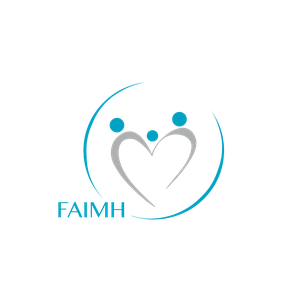We are a community who comes together as one in times of tragedy.
Today we hold our fellow community, our fellow families, those in particular, who are suffering the devastation and aftermath of the collapse of the Champlain Towers in Surfside, Florida.
Below we have included helpful guidance on how to talk with children when scary or sad things happen, as well as a way to donate to those affected by this tragedy.
How Do We Talk to Children When Scary Things Happen?
An article from University of Colorado Boulder, published March 2021
When scary or sad things happen in the world, whether thousands of miles away, in your state, your town, your backyard or your home, kids look to the adults that surround them to help them feel safe and understand what is happening. This can feel tricky and challenging, particularly when the adults themselves are also responding to and making sense of the same experience.
The Center for Resilience & Well-Being in Schools at The University of Colorado Boulder, has resources to offer guidance for parents, guardians, teachers or anyone else who is regularly with children. The following is an adapted version of a resource on how to talk with children and youth when scary things happen. Full resources are available at this link.
Here are several helpful tips:
1. Check in with yourself first
Before talking with a youth, check in with yourself (How am I feeling? What do I need?) so that you are calm and grounded during the conversation. Just as youth have feelings about these experiences, so do adults. Checking in with yourself first will also help you to be ready to address any questions youth might have. It’s OK not to have all the answers. Your warm, open presence is the most important thing.
2. Clarify your goal
As you approach the conversation, it can be helpful to start with a goal in mind. An overall goal is to create a safe space for youth to share their feelings, questions, reactions and experiences about the scary/sad thing and to feel your support. You might ask yourself, “How might I help my child feel safe?” “Is there some important information for them to know? Is there any misinformation to correct? What might my child already know or think about the situation?”
Keep coming back to messages of safety, support and willingness to keep talking.
3. Provide information
Share simple facts and information about what happened and balance it with information about how adults and/or community systems may have stepped forward to help and create safety. Match the type and amount of information to the developmental level of the child. Ask open-ended questions about what they may have already heard and correct any misinformation. Keep this part of the discussion brief, simple and clear. Multiple short conversations can often be more powerful than a single long conversation.
4. Ask helpful questions
Ask helpful questions to learn more about the young person’s thoughts, feelings, perspective and needs. The goal is to gain an understanding of the young person’s experience and not one of “fact finding,” or learning about specific details of a situation. The questions we ask should be open-ended and focused on their experience, emotion and perspective. (“What was that like for you?,” “How are you feeling?,” “What are you thinking/wondering about?,” Do you have any questions or worries?”)
5. Validate feelings
Normalize and validate their feelings. It’s okay to feel scared, sad or mad. This doesn’t mean that you’re normalizing the bad thing that happened, but instead you’re affirming that whatever they are feeling is normal and OK. You might say, “That makes sense,” “I understand,” “Other people feel that way, too,” and “You are not alone.”
6. Reduce media exposure
Be aware of how much you are checking the media when you are with youth, and be aware of how much they are tracking the event in the media to monitor and reduce negative impacts. While it is part of our culture to be consistently connected to news and social media, if youth see that you are checking your phone or the television constantly, they may be more likely to do the same.
Read more: Talking to Children When Scary and Sad Things Happen
More coping resources from the National Child Traumatic Stress Network
Please share with your colleagues, friends and family--anyone in your life who might be struggling to know what to say to their children during this time; anyone who wants to know how they can help the survivors.



